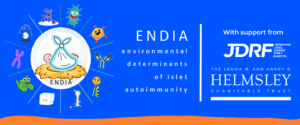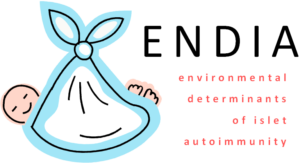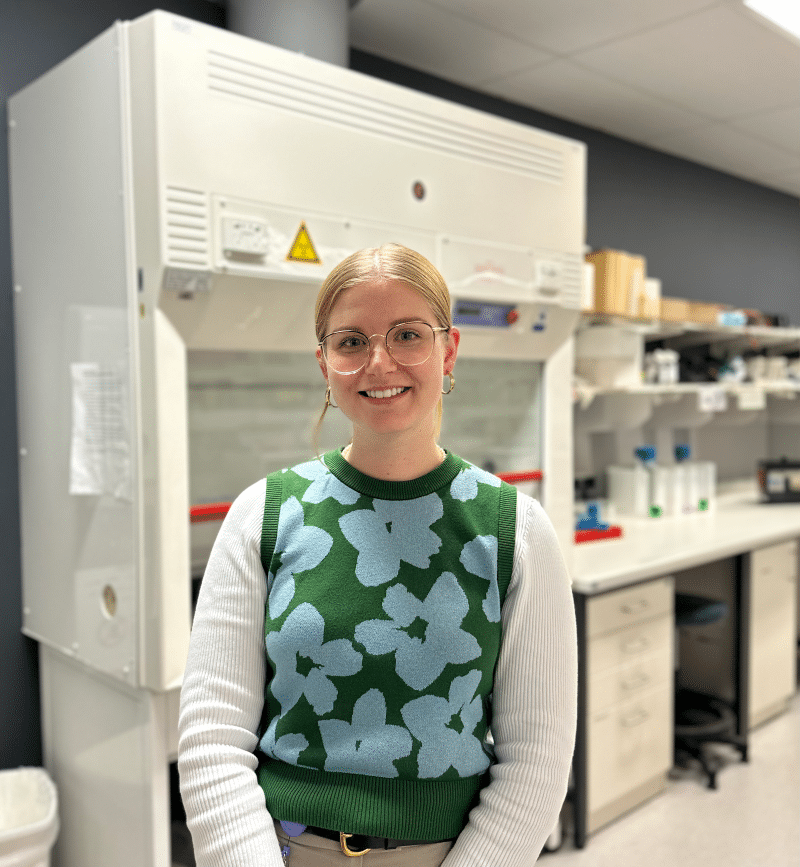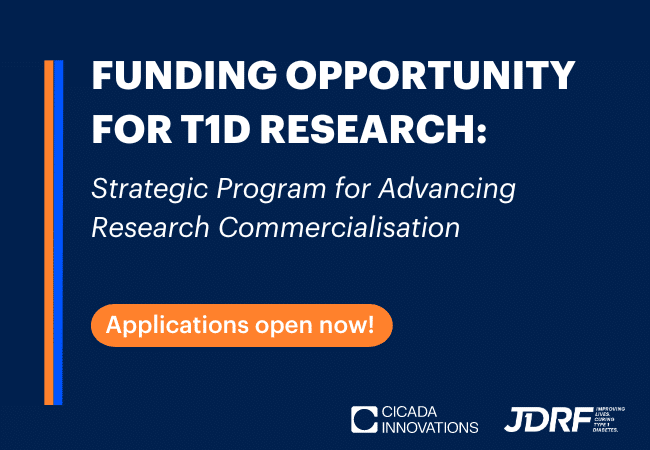Request for Applications to advance collaborative research in T1D prevention
Request for Applications to advance collaborative research in T1D prevention

Requests for applications are now open for new collaborations with the Environmental Determinants of Islet Autoimmunity (ENDIA) Study Group and leading experts around the world to answer important unknowns about disease mechanisms with the long-term aim of preventing type 1 diabetes (T1D).
The JDRF Australian Type 1 Diabetes Clinical Research Network (T1DCRN) and The Leona M. and Harry B. Helmsley Charitable Trust (Helmsley) have been supporting ENDIA since 2015. The funders remain committed to continue advancing the development of T1D prevention strategies to positively impact the lives of people with T1D.
ENDIA is unique as the world’s first study from pregnancy to investigate how the environment interacts with an individual’s genes to drive the development of islet autoimmunity leading to dysfunction of beta-cells and T1D.
In 2019, ENDIA completed recruitment of 1,473 children born in Australia who have an immediate relative with T1D, screening for islet autoimmunity and collecting a rich and diverse set of biosamples and clinical data from the children from the first trimester of pregnancy up until 10 years of age.
The funding opportunity: This Request for Applications (RFA): Accelerating Collaborative Research in Type 1 Diabetes Etiology and Pathogenesis using Biosamples from an Observational Clinical Study” is intended to support new collaborations outside of ENDIA’s current network to strengthen prior achievements and create opportunities to investigate new hypotheses. Access to the highly precious data and biosamples of ENDIA spanning pregnancy, birth and early life, can be provided to successful applicants.
Applicants are encouraged to contact the ENDIA team to discuss their concepts and check their expectations for samples and data prior to submission. Initial contact can be made by emailing to [email protected].
The application process will involve two stages. At the initial step, applicants submit Letters of Intent (LOIs) to provide a brief overview of their research plan. Shortlisted applicants will then be invited to submit Full Proposals with detailed research plans.
Successful applicants will be required to form a contractual partnership with an Australian administrating institution affiliated with the ENDIA Study Group.
For more information on this RFA, read the terms of this Request for Applications and other supporting documents (linked below).
Apply for the RFA:
Applications are to be submitted online using the online grants management system RMS360. For instructions on how to use the RMS360, please click here.
Downloads:
Resource Availability and Supplementary Information
Key Dates:
- Applications open: 6 February 2023
- LOI Deadline: 7 April 2023
- Invitation to full proposals: 15 May 2023
- Funding announcements: September 2023
- Latest Start: December 2023
Contact personnel:
For enquiries on strategic fit and resource access, please contact:
Megan Penno, PhD
National Project Manager, ENDIA Study
Adelaide Medical School, University of Adelaide
In partnership with:


Other relevant funding opportunities:
The Global Platform for the Prevention of Autoimmune Diabetes (GPPAD) have announced a Request for Proposals (RFP) for investigators to perform innovative research on biosamples from the GPPAD POInT clinical trial.
Visit their website for more details and to apply.
Other Available Grants

Career Support and Travel Grants, Round 1, 2025 – is now closed.
JDRF acknowledges the need to support excellence in research and clinical care in type 1 diabetes (T1D) through advancing the impact of T1D research in Australia.
Learn more
PhD Top-Up Scholarship 2025
JDRF Australia is dedicated to advancing cutting-edge research in Type 1 Diabetes (T1D), with a strong emphasis on nurturing the development of talented emerging researchers in the field. JDRF Australia is inviting applications for the PhD Top-up Scholarship. The Scholarship is designed to support and encourage PhD students pursuing research in the field of T1D in line with JDRF’s mission – to treat, prevent and cure T1D.
Learn more
